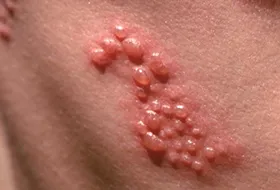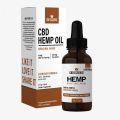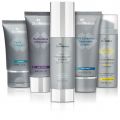CBD Oil For Shingles: Is it Effective in Reducing Nerve Pain?
 The majority of people who get the varicella-zoster virus and develop chickenpox experience an excruciating time of itching. The infection eventually resolves on its own. However, did you know that the virus can remain dormant in your body for years after infection?
The majority of people who get the varicella-zoster virus and develop chickenpox experience an excruciating time of itching. The infection eventually resolves on its own. However, did you know that the virus can remain dormant in your body for years after infection?
In some individuals, the virus reactivates years later, resulting in shingles, a viral infection that many people describe as more painful than chickenpox. Shingles is most commonly associated with blisters on one side of the body and a painful, burning rash.
Cannabidiol (CBD) is used to treat a variety of diseases, including pain and inflammation, which is why some feel it may assist with shingles. However, is this truly true? We examine the evidence on using CBD oil for shingles and make some CBD product recommendations below.
Glossary of CBD terms
CBD is available in three distinct forms
Full-spectrum. This means the product contains all of the cannabis plant's cannabinoids and terpenes, as well as trace levels of tetrahydrocannabinol (THC) – the active element responsible for the "high." According to research on the entourage effect, CBD appears to act better when combined with THC.
Isolate. This is a highly processed version of CBD that contains only CBD.
Broad-spectrum. This indicates that the product includes some cannabinoids and terpenes but none of the psychoactive compound THC.
Can CBD be used to treat shingles?
There is no scientific proof that CBD can be used to treat shingles. Although anecdotal reports of people using CBD to treat shingles exist, they are not supported by the current body of knowledge. According to an article published in the journal Cannabis and Cannabinoid Research, CBD may be used to treat viral illnesses such as hepatitis C. However, there is insufficient clinical evidence to support this idea at the moment. Having said that, there is some evidence that CBD may aid in the reduction of pain and inflammation.
If you have shingles, we recommend that you adhere to your doctor's treatment plan religiously.
While there is no vaccination available for hepatitis C at the moment, therapeutic alternatives can help avoid future issues. Additionally, they can assist in reducing the viral load to the point that the infection is no longer detectable by laboratory tests. This is referred described as remission or cure by healthcare practitioners.
The most common shingles treatments
The following drugs may be used to aid in the resolution of a shingles infection and to alleviate symptoms:
- antivirals
- anti-inflammatories
- analgesics
- anticonvulsants
- antidepressants
- antihistamines
- topical analgesics
- capsaicin
Delay or avoidance of treatment might result in shingles consequences such as nerve damage, which can result in chronic nerve discomfort.
A 2018 meta-analysis of research
According to a Trusted Source, cannabis-based drugs may benefit those who suffer from persistent nerve pain. Finally, additional study is necessary to have a better understanding of the relationship between chronic nerve pain relief and cannabis-based drugs.
Security and adverse effects
While CBD is not a substitute for traditional treatment alternatives, despite the paucity of scientific evidence, it is probably safe to use CBD for shingles. Simply with your physician first, especially if you are currently using any drugs or supplements. CBD may have an interaction with some drugs.
Although topicals are less likely to enter your bloodstream than ingested products, it is still prudent to exercise caution and follow your doctor's recommendations.
Additionally, be careful of possible negative effects. While research indicates that CBD is typically safe to use topically or orally, some individuals may have modest adverse effects such as the following:
- diarrhea
- fatigue
- Changes in weight or appetite
When consuming CBD products, particularly full-spectrum CBD products, it is possible to test positive for THC.






